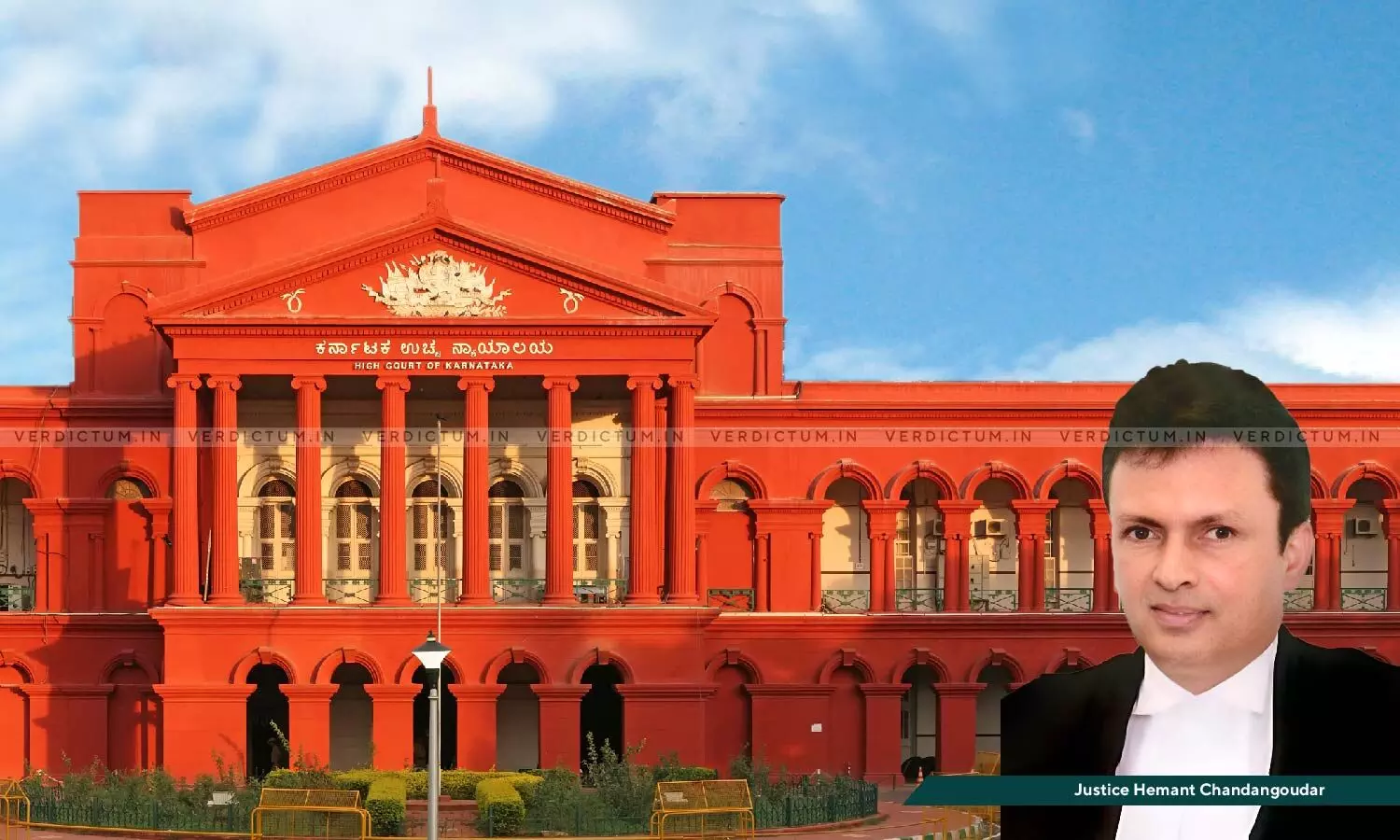
Karnataka HC Upholds State Govt. Notification Modifying Transport Schemes & Saving Permits Of Pre-2002 Permit Holders
 |
|The Karnataka High Court has upheld the State Government's notification through which they modified several transport schemes and exempted permit holders who had permits as of January 14, 2002, from operating their services on various routes provided they did not pick up or drop off passengers on portions of the notified routes.
In that context, the Bench of Justice Hemant Chandangoudar observed that, "The need for passenger transportation arises from various factors and plays a pivotal role in ensuring connectivity, mobility and quality of life, and when the State Government deems it appropriate to save the permits in the interest of the traveling public by modifying the schemes, the same cannot be interfered with, unless it is arbitrary and discriminatory."
Petitioners, including the State Transport Undertakings (STU), KSRTC Staff, and Workers Federation, challenged a notification dated September 28, 2017, issued by the State Government. This notification modified several transport schemes: the Bellary Scheme (approved January 10, 1968, and modified January 10, 1980), the Kolar Scheme (approved January 10, 1968, and modified January 10, 1980), the Mysore Scheme (approved November 17, 1960, and modified November 28, 1987), the BTS Scheme (approved January 16, 1960, and modified September 30, 2014), the Bangalore Scheme (approved June 7, 1960, and modified January 17, 1996, and May 28, 2007), and the Kanakapura Scheme (approved December 30, 1965).
The notification exempted permit holders, who had permits as of January 14, 2002, from operating their services on various routes, provided they did not pick up or drop off passengers on portions of the notified routes. These schemes, originally approved by the State Government under Section 68(D) of the Motor Vehicles Act, 1939, had created a monopoly for State Transport Undertakings on the specified routes.
The BTS scheme had been previously examined in the case of Ashrafulla Khan v. Karnataka State Transport Appellate Tribunal, which was referred to a full bench of the High Court. The Full Bench had ruled that small portions within towns or villages on nationalized routes were intersections, not overlaps. This decision led to the granting of stage carriage permits to private operators, but was later challenged and overturned by the Supreme Court, which clarified the distinction between intersections and overlaps, reinforcing the integrity of the nationalized routes.
Following this, the Motor Vehicles Act, 1988, replaced the Act of 1939. The State Government, given the liberty by the Supreme Court and under Section 102 of the new Act, modified various schemes. However, these modifications were contested, leading to the High Court quashing the modifications on April 21, 2011, and directing a fresh review with stakeholder notifications.
The Apex Court upheld this requirement for a quasi-judicial process with detailed consideration of objections. After subsequent reviews and hearings, the State Government issued a notification on August 5, 2015, which was then challenged and set aside by the High Court, remitting the matter for fresh consideration. The Minister for Transport conducted the proceedings and, after considering all objections, recommended necessary amendments to provide efficient, economical, and coordinated transport services, resulting in the impugned notification.
The High Court observed that, "The saving of the said permits cannot be construed as legitimising said permits when Section 102 empowers the modification of the scheme in the interest of the traveling public. After modification of the schemes, if the permits are not saved, the traveling public alone will be put to inconvenience, and the modification of the scheme relates back to the date on which the schemes were approved. Not saving the permits would result in the issuance of fresh permits, leading to unnecessary litigations, and ultimately causing inconvenience to the traveling public once again. Therefore, it cannot be said that illegal permits have been legitimised under the pretext of modifying the approved schemes."
In light of the same, the Court held that the modification of the approved schemes and, consequently, saving the permits, were within the domain of the State Government in exercise of power under Section 102 of the Motor Vehicles Act.
Cause Title: SK Venkata Reddy & Ors. vs The State of Karnataka & Ors.
Click here to read/download the Judgment